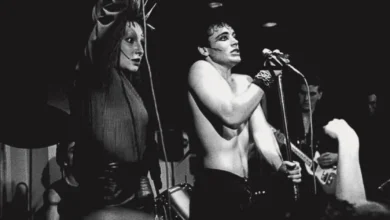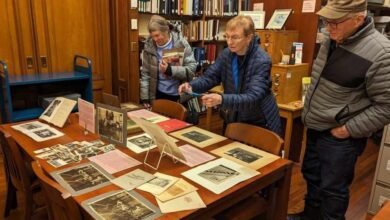Molly Houses: Community, & Homosexuality in the 18th Century


 Situated in the 18th century taverns and inns, coffeehouses or even private rooms and suites of the sprawling English Colonial World, “molly houses” were clandestine locations where gay men and cross-dressing individuals found community. They represented safe spaces to interact and socialize, places filled with the possibility of social negotiation – and of social connection, which was crucial due to the ever-present threat of capital punishment.
Situated in the 18th century taverns and inns, coffeehouses or even private rooms and suites of the sprawling English Colonial World, “molly houses” were clandestine locations where gay men and cross-dressing individuals found community. They represented safe spaces to interact and socialize, places filled with the possibility of social negotiation – and of social connection, which was crucial due to the ever-present threat of capital punishment.
The word molly (also spelled as molley, mollie, mally), a pet-form of Mary, had two main connotations in 18th century English. The first one was close to the word moll, a lower-class girl or woman, occasionally a prostitute. The second one was slang for an effeminate, usually homosexual, male.
From 1533 onward, homosexual relations and sexual activities remained illegal and were frequently prosecuted. In Great Britain they remained capital offenses until 1861.
From the 16th century until that time, but particularly during the 1720s, molly houses were the scenes of raids and arrests, and their customers frequently became targets for blackmail.
In 1776, male homosexual acts were punishable by death in all 13 original colonies. While there are records of at least two executions, and some convictions under vague terms like “crimes against nature,” the exact number of executions and convictions is unknown. South Carolina was the last state to remove the death penalty for homosexual acts from its statute books in 1873.
Washington’s Headquarters State Historic Site will host Dr. Megan Rhodes Victor of Queens College on Saturday, June 21 at 2 pm for a talk about colonial molly houses. The program, “‘We’ll Be Free’: Molly Houses, Community, & Homosexuality in the 18th C. English Colonial World,” is free and open to the public.
Dr. Victor is an Anthropological Archaeologist with a specialization in Historical Archaeology. Their research includes a focus on the archaeology of the LGBTQ+ community from the 17th to 19th centuries, as well the archaeology of places of communal drinking and eating.
Through the Molly House Project, Victor hopes to contribute to the archaeological exploration of these spaces of homosexuality.
“Taverns were largely male drinking spaces in the 18th century, and yet these were also one of the few places where women – especially unmarried or widowed women – could not only work but manage the business affairs,” Dr. Victor says. “It is striking that these locations were the ones chosen for molly houses, rather than other, more gender-ambiguous locations.”
Though widely known from archival sources, no known molly house has yet to be excavated according to Victor, and no excavated tavern or other site has been connected with the molly house phenomenon.
Victor’s talk is free and open to the public. Guided tours of the historic house used by Gen. Washington are available before the talk (11 am until 1 pm) with regular admission tickets.
Washington’s Headquarters State Historic Site is located at the corner of Liberty and Washington Streets within the city of Newburgh‘s East End Historic District.
Illustration: A detail from a parody image depicting male and female cross-dressing, ca. 1780, after a work by John Collet.
Source link




